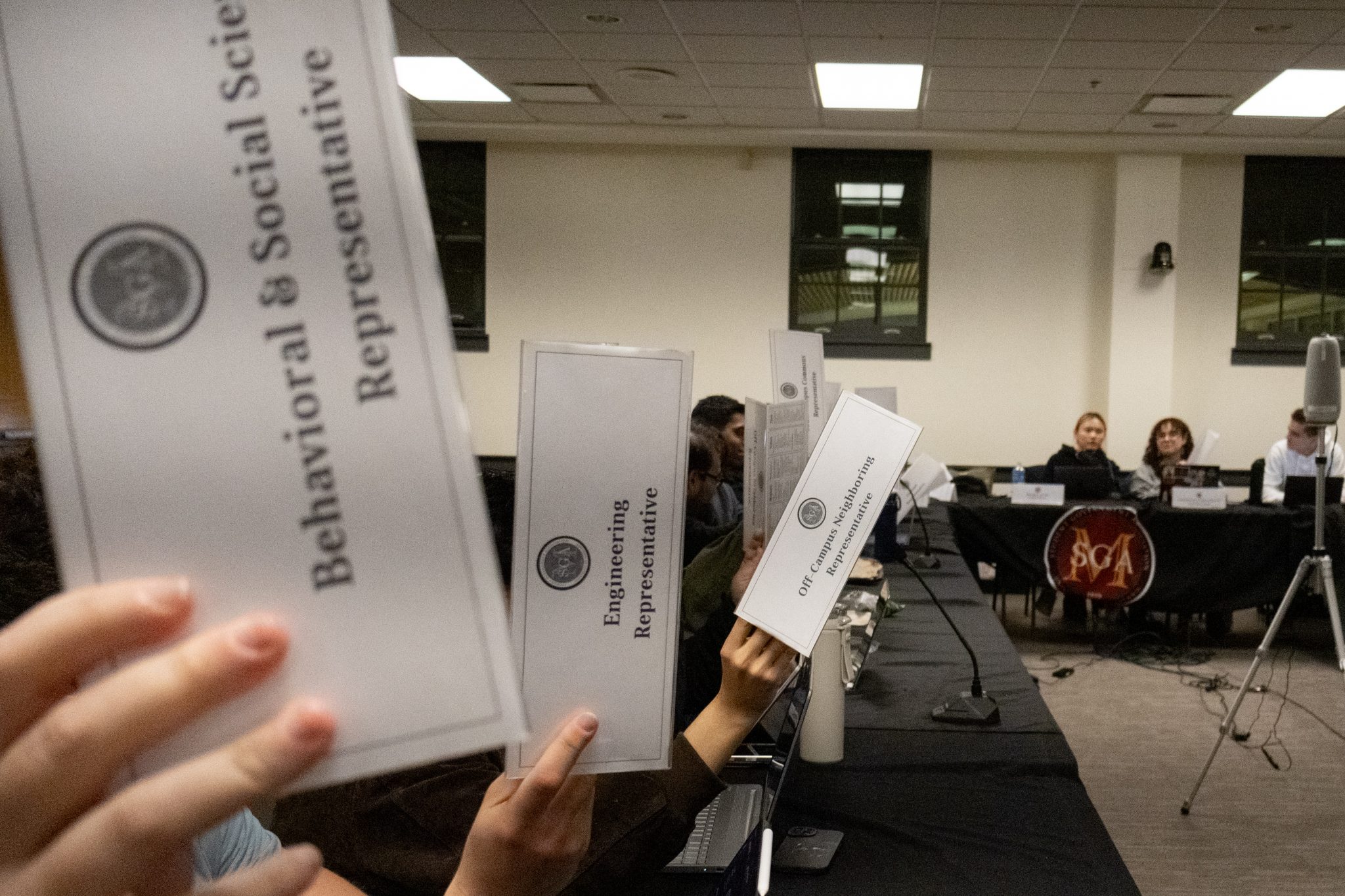The University of Maryland SGA passed several initiatives during the 2024-25 academic year in response to student activism and federal and state legislation.
Here are some of the Student Government Association’s highlights from this year.
Divestment referendum
During the SGA election this year, students voted in support of the University System of Maryland Foundation and University of Maryland College Park Foundation divesting from certain defense, military and security companies.
Fifty-five percent of voters, or 3,260 people, voted in favor of the referendum. The question called on the SGA to start lobbying the university system foundation and UMCP foundation to divest from companies that may be “implicated” in human rights violations in places such as Palestine, Sudan and the Philippines.
This university wrote in a statement to The Diamondback on April 18 that the referendum’s results have no bearing on the policies or operations of the university or its foundations.
Similar resolutions failed to advance in the SGA in 2017, 2019 and last spring, The Diamondback previously reported.
Responding to federal actions
The SGA was faced with “a lot of challenges” at both the federal and state levels, outgoing SGA president Reese Artero told The Diamondback on May 2.
[UMD GSG elects new executive board members for 2025-26 school year]
In February, the SGA approved a bill to launch a “Know Your Rights” campaign, which would require SGA members to work with campus groups and legal experts to assemble materials for immigrant, international and undocumented students, as well as Deferred Action for Childhood Arrivals recipients, The Diamondback reported in February.
The act also urges this university to expand the Student Crisis Fund — a university program that provides aid to students during unexpected emergencies — to cover legal costs as relief for students who face risks of detainment or deportation.
The bill came after U.S. President Donald Trump signed several executive orders targeting illegal immigration during his first week back in office.
The SGA also worked with the University Career Center to promote internship and job opportunities for students affected by the federal hiring freeze.
“It was really crucial we got this out really fast to students so they could be able to apply before the deadlines were surpassed,” Nick DiSpirito, a sophomore public policy major and former SGA off-campus neighboring representative, said.
The SGA specifically focused on providing internship resources for students in state government and within this university, such as the Do Good Institute’s Impact Interns program and Maryland Department of Transportation Fellows Program.
The SGA has also promoted existing resources including those from the undergraduate research office and Pathways to Science, both of which help students find and secure research positions.
Priya Tyagi, a freshman cell biology and genetics major and former computer, mathematical and natural sciences college representative, said resources such as Pathways to Science fill in the gap that the cancellation of research programs have left by providing scholarships, fellowships and internships to underrepresented students in the science fields.
[UMD RHA bills passed include student voter registration, accessibility resolutions]
The SGA also passed a resolution this semester reaffirming its commitment to diversity, equity and inclusion and sustainability in response to other executive orders passed by Trump.
Gender-affirming care items
In the fall semester, the SGA passed a bill allocating funding for the LGBTQ+ Equity Center to provide gender-affirming care items, including chest binders and TransTape, this spring, The Diamondback reported in November.
The program, which aimed to support at least 100 students by the end of the academic year, has expanded since the SGA began working with the equity center about two years ago to provide gender-affirming care materials to students, Artero said.
The SGA may allocate upward of an additional $5,000 to the equity center for its operations next year depending on the remaining balance in its legislative reserves, the senior criminology and criminal justice major said.



